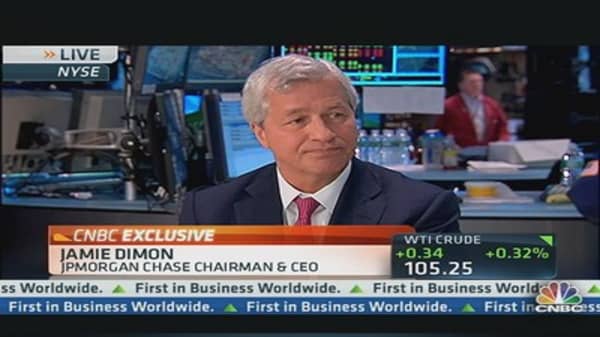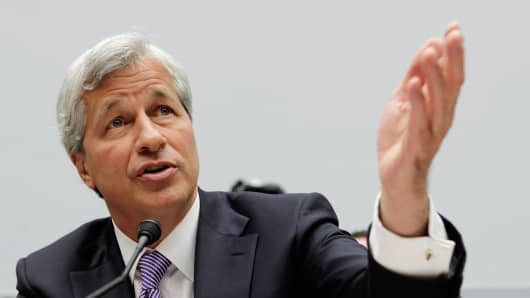Jamie Dimon told CNBC on Friday he would have stayed at JP Morgan Chase even if his chairman and CEO roles had been split, despite reports that he had planned to leave.
"I wouldn't have liked it, but I never would have left my company high and dry," Dimon said of the vote in May.
(Read More: JPM Averts CEO/Chair Job Split, in Boost to Dimon)
In a wide-ranging interview, he also told CNBC's "Squawk on the Street" the banking giant can do well even in a rising interest rate environment, despite what that may do to mortgage rates, as long as the overall economy is doing well.
"All things being equal, rates going up is a good thing, as long as the economy is growing," he said when asked about the Federal Reserve's eventual plan to taper bond purchases.
"We all want normalized rates. I believe in the process of normalization you're going to have some volatility," he said. "Look past the volatility. As long as the economy is strong, I think we're going to be fine."




